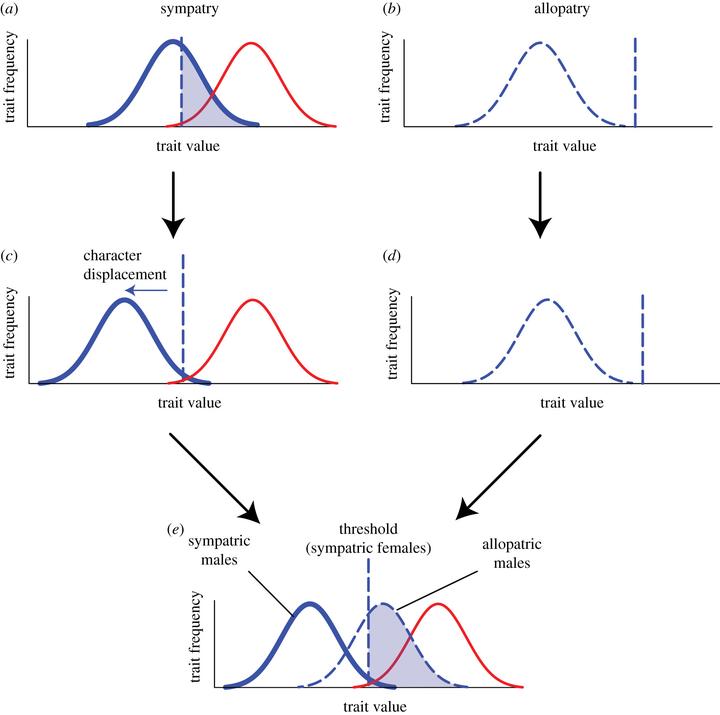To accept or reject heterospecific mates: behavioural decisions underlying premating isolation

Abstract
Premating isolation in animals involves decision-making processes that affect whether individuals accept or reject heterospecific mates. An integrative understanding of the behavioural processes underlying heterospecific acceptance can clarify the conditions under which premating isolation evolves. As an illustration, we review how Reeve’s (Reeve 1989 Am. Nat.133, 407–435.) acceptance threshold model can help make sense of patterns of premating isolation in nature. This model derives a threshold trait value for acceptance for rejection of recipients of an action (e.g. mating) based on the fitness consequences of these decisions. We show that the maintenance of partial reproductive isolation can be an outcome of optimal acceptance thresholds, even in the face of reinforcement. We also use this model to clarify how the composition of multispecies communities can shape premating isolation. The acceptance threshold model can also be viewed as the behavioural underpinning of reproductive character displacement and cascading reinforcement. Finally, we highlight potential limitations of the acceptance threshold model with respect to investigating the role of sexual selection in speciation, and we propose that integration of behavioural models in speciation research will help us gain a full picture of the mechanisms underlying premating isolation.